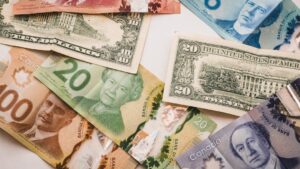Maximizing Profits Through Long Term Forex Trading
Forex trading, also known as foreign exchange trading, is a financial market where participants buy, sell, and exchange different currencies. It has become increasingly popular among individuals and institutions looking to profit from the fluctuations in currency prices.
While many traders focus on short-term trading strategies, such as day trading or swing trading, there is a significant potential for maximizing profits through long-term forex trading. In this article, we will explore the benefits and strategies of long-term forex trading and how it can help traders achieve higher profitability.
1. Understanding Long-Term Forex Trading:
Long-term forex trading refers to holding positions for an extended period, usually weeks, months, or even years. It requires a different mindset and approach compared to short-term trading. Instead of focusing on quick gains, long-term traders analyze fundamental factors, macroeconomic trends, and geopolitical events that can impact currency values over the long run.
2. Benefits of Long-Term Forex Trading:
a. Reduced Transaction Costs: One of the primary advantages of long-term forex trading is lower transaction costs. Short-term trading often involves frequent buying and selling, resulting in higher commission fees, spreads, and slippage. Long-term traders, on the other hand, have fewer trades, reducing overall costs.
b. Taking Advantage of Trends: Long-term traders aim to capture major trends in the forex market. By holding positions for an extended period, they can benefit from significant price movements. Instead of trying to predict short-term fluctuations, long-term traders focus on identifying strong, sustainable trends and riding them for maximum profits.
c. Less Time-Intensive: Short-term trading requires constant monitoring of the market and quick decision-making. On the other hand, long-term traders can spend less time actively trading and analyzing the market. This flexibility allows individuals with full-time jobs or other commitments to participate in forex trading.
3. Strategies for Long-Term Forex Trading:
a. Fundamental Analysis: Fundamental analysis is a crucial tool for long-term traders. It involves studying economic indicators, central bank policies, geopolitical events, and other factors that affect currency values. By understanding these fundamentals, traders can make informed decisions about which currencies to buy or sell for the long term.
b. Trend Following: Trend following is a popular strategy among long-term traders. It involves identifying and following major trends in the forex market. Technical indicators, such as moving averages or trendlines, can help traders identify potential entry and exit points. By aligning with the trend, traders increase their chances of maximizing profits.
c. Diversification: Long-term traders often diversify their portfolios by holding positions in multiple currency pairs. This strategy helps spread the risk and reduces the impact of any single currency’s fluctuations. Diversification also allows traders to capture opportunities in different markets and take advantage of varying economic conditions.
4. Risk Management in Long-Term Forex Trading:
While long-term forex trading offers the potential for higher profits, it also comes with certain risks. To manage these risks effectively, traders should consider implementing risk management strategies, such as:
a. Setting Stop-Loss Orders: Stop-loss orders are essential tools in limiting potential losses. By placing stop-loss orders at strategic levels, traders can automatically exit a position if the market moves against them beyond a predetermined point.
b. Managing Position Sizes: Long-term traders should carefully consider their position sizes to avoid overexposure to a single currency pair. By allocating a reasonable percentage of their trading capital to each position, traders can minimize the impact of potential losses.
c. Monitoring Economic Events: Long-term traders must stay updated on economic events and news that can impact currency values. Sudden changes in economic data or unexpected events can lead to significant market volatility. By staying informed, traders can adjust their strategies accordingly and mitigate potential risks.
In conclusion, long-term forex trading offers a viable alternative to short-term trading strategies. By taking advantage of major trends and fundamental analysis, traders can maximize profits and reduce transaction costs. However, it is important to implement effective risk management strategies to protect capital and navigate potential market fluctuations. Long-term forex trading requires patience, discipline, and a deep understanding of the forex market, but it can provide substantial rewards for those willing to commit to the long haul.






